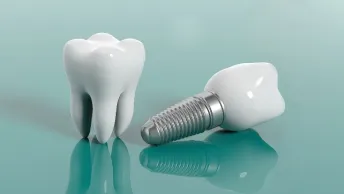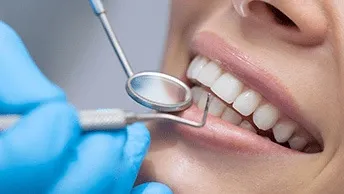As individuals age, questions often arise regarding the suitability of dental implants. Concerns may arise about the success rates of implants based on age, and whether they offer comparable benefits to older adults as they do to younger individuals. Fortunately, dental implants remain equally effective and durable for older age groups, often significantly enhancing physical health and confidence. Age should not deter seniors from considering dental implants.
What Are Dental Implants?
Dental implants function as artificial tooth roots, typically resembling screws. Skilled dentists insert these implants into the jawbone, where they fuse with natural bone tissue, providing a stable foundation for artificial teeth, or crowns. An abutment, or connector, is then placed atop the implant to secure the custom-made crown, which is designed to match existing teeth and fit seamlessly into the mouth. Dental implants represent one of the most robust, secure, and reliable solutions in dentistry.
What to Expect During Dental Implant Procedures
The process of receiving dental implants typically involves several steps:
1. Consultation: An experienced implant dentist assesses the oral condition, utilizing X-rays and discussions to determine suitable implant options and formulate a personalized treatment plan.
2. Implant Placement: During the subsequent appointment, the dentist surgically implants the device into the jawbone at precise locations corresponding to missing teeth. Many individuals report minimal discomfort following the procedure, often resuming normal activities within a day.
3. Post-Surgery Recovery: While discomfort following implant surgery is common, it is manageable with over-the-counter pain medications. Swelling, bruising, minor bleeding, and discomfort akin to other dental surgeries may occur. The use of IV sedation or local anesthesia ensures patient comfort during the procedure.
4. Osseointegration: Over time, the dental implant and jawbone undergo osseointegration, a process where they merge to form a robust foundation for replacement teeth. During the initial healing period, a soft food diet may be recommended to facilitate proper implant integration. Within a few months, patients typically regain full functionality and resume their regular diet.
5. Abutment Placement: Once osseointegration is complete, a small connector (abutment) is placed on the dental implant. In some instances, this step may coincide with the initial implant placement.
6. Attachment of New Teeth: Upon full healing of the gums, the dentist fabricates custom artificial teeth, such as individual crowns, implant-supported bridges, or dentures. These replacements require routine care, check-ups, and cleanings akin to natural teeth.
7. Follow-Up Appointments: Regular visits to the dentist are necessary to monitor the healing process and ensure the longevity of the dental implants. The frequency of check-ups varies based on the number and type of implants received, with the entire process typically spanning three to nine months.
How to Manage Dental Implants After the Procedure
After you have dental implant surgery, you can expect to experience:
1. Swelling of your gums and face
2. Minor bleeding
3. Bruising of your skin and gums
4. Pain at the implant site
Typically, the dental surgeon will use stitches that dissolve on their own. If your stitches aren't self-dissolving, your doctor removes them. Your doctor may recommend that you take pain medication or antibiotics.
Tips for Taking Care of Your Dental Implants
Most dental implants for seniors are successful. In some cases, the bone doesn't fuse to the dental implant. In these cases, the dental implant is removed, and you can try again about three months later.
You can help your implants last by:
1. Practicing good dental hygiene by brushing and flossing regularly
2. Seeing your dentist regularly and getting regular professional cleanings
3. Avoiding damaging habits like chewing on hard candy or ice or using tobacco
Keep in mind that all oral surgeries include a small risk of bleeding disorders, infections, and allergic reactions. If an implant is placed too close to a nerve, for instance, it can cause numbness or tingling in the tongue, lips, gums, or face. If your body rejects the dental implant, it can cause pain at the implant site, along with swelling, fever, and chills.
If you are experiencing symptoms or suspect there is a problem following your implant, you should return to the dentist immediately.



